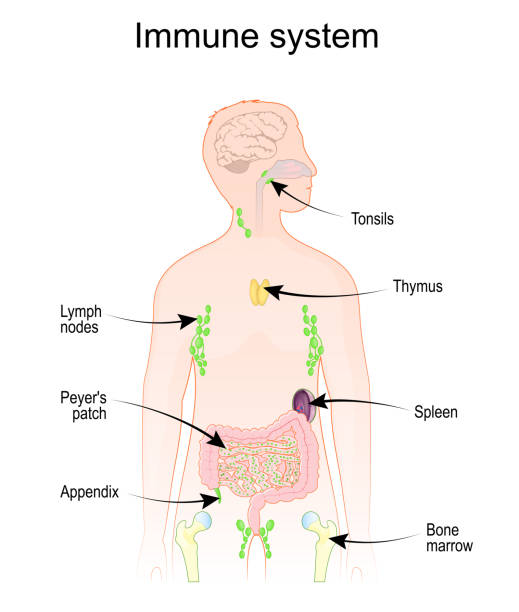The human body is a miracle of resilience, constantly fighting battles you may never even notice. Every breath you take carries dust, microbes, and invisible viruses. Every scratch on your skin is an open invitation to infection. Yet, most of the time, you remain healthy, unaware of the microscopic wars being waged within you.
That quiet, unseen protector is your immune system. It is a vast, complex network of cells, tissues, and organs that never stops working. From the moment you are born, your immune system begins learning, adapting, and building a defense strong enough to keep you alive in a world teeming with threats.
The immune system does not rely on a single strategy. Instead, it uses layers of defenses—some ancient and general, others highly specialized and precise. In this article, we will explore fifteen remarkable ways your immune system protects you every day, keeping you safe even when you have no idea danger is near.
1. Skin: The First Line of Defense
Your skin is not just a covering—it is your body’s fortress wall. As the largest organ of the body, it shields you from billions of bacteria, viruses, and fungi in your environment. Its multiple layers form a nearly impenetrable barrier, while natural oils and sweat on its surface create an acidic environment hostile to microbes.
Even when the skin is broken, specialized immune cells immediately respond, releasing chemical signals that summon reinforcements to heal the wound and prevent infection. In this way, your skin is both a barrier and an active player in your immune defense.
2. Mucous Membranes: Sticky Traps for Invaders
While your skin covers the outside, your mucous membranes line your internal passageways—your nose, throat, lungs, and digestive tract. These membranes produce sticky mucus that captures dust, allergens, and microbes. Tiny hair-like structures called cilia then sweep the mucus away, either to be coughed out or swallowed and destroyed by stomach acid.
This system is constantly at work. Each time you inhale, mucous membranes trap potential invaders before they can settle deep in your body. It’s like having an internal cleaning service that never takes a break.
3. Stomach Acid: A Deadly Chemical Weapon
Your stomach may seem like just a digestive organ, but it is also an essential immune defense. The strong hydrochloric acid it produces can dissolve food—but it also destroys most bacteria and viruses that you swallow.
This acidic barrier ensures that pathogens hitching a ride on your food rarely make it into your intestines alive. It’s one reason why spoiled food can still make you sick: if pathogens overwhelm this defense, they can sneak through and cause infection.
4. The Microbiome: Friendly Bacteria That Guard You
Inside your gut lives an entire community of trillions of bacteria, viruses, and fungi, known collectively as the microbiome. Far from being harmful, most of these microbes are allies. They compete with dangerous invaders for resources, produce antimicrobial substances, and even train your immune system to recognize threats.
The microbiome is like a bustling city of guardians. When balanced, it keeps your digestive system—and much of your immune system—in good health. When disrupted, harmful microbes may take over, leading to infections and diseases.
5. Phagocytes: The Hungry Cells That Devour Intruders
Deep inside your tissues and bloodstream are immune cells known as phagocytes, whose very name means “eating cells.” Their job is simple but vital: when they encounter bacteria, dead cells, or other debris, they engulf and digest them.
This process, called phagocytosis, is one of the immune system’s most ancient defense strategies. Phagocytes are like microscopic garbage collectors and bodyguards combined, keeping your system clean and safe.
6. Natural Killer Cells: Destroyers of Infected Cells
While phagocytes consume invaders, natural killer (NK) cells specialize in eliminating cells that have already been compromised, such as virus-infected cells or cancerous ones. NK cells patrol your body like a security force, recognizing when cells are behaving abnormally and delivering a lethal blow that makes them self-destruct.
Without NK cells, viruses would spread unchecked inside your cells, and cancer cells would have a much easier time surviving. These silent warriors are one of your body’s most important early defense systems.
7. Inflammation: The Call to Arms
When tissues are damaged or infected, your body responds with inflammation. The redness, swelling, heat, and pain you feel are actually signs that your immune system is rushing to defend you.
Blood vessels dilate, allowing immune cells to flood the area. Chemicals like histamines signal reinforcements, while phagocytes and other cells move in to destroy invaders. Though inflammation can be uncomfortable, it is one of your immune system’s most powerful protective tools.
8. Fever: Turning Up the Heat
When your body detects infection, it sometimes raises its temperature, creating a fever. This rise in heat is not an accident—it’s a deliberate immune strategy. Many microbes struggle to survive in higher temperatures, while your immune cells actually work faster.
By turning up the heat, your body weakens invaders and gives itself a better chance of winning the battle. Of course, extremely high fevers can be dangerous, but mild to moderate fevers are often signs of your immune system doing its job.
9. Antibodies: Precision-Guided Weapons
One of the most sophisticated tools in your immune arsenal is the antibody. These Y-shaped proteins are produced by specialized cells called B lymphocytes. Each antibody is designed to recognize a specific invader, such as a particular virus or bacterium.
When an antibody binds to its target, it marks it for destruction, neutralizes toxins, or prevents the invader from entering your cells. Antibodies are so precise that they can distinguish between millions of different threats, forming the basis of long-lasting immunity after infections or vaccinations.
10. Memory Cells: Guardians of the Past
Once your immune system encounters a pathogen, it doesn’t forget. Memory B and T cells remain in your body long after the infection has cleared, ready to launch a rapid defense if the same invader returns.
This memory is why you usually only get diseases like chickenpox once, and it’s the principle behind vaccines: by safely training your immune system, vaccines give you protective memory without the risk of full-blown illness.
11. The Complement System: A Chemical Attack Force
The complement system is a group of proteins that circulate in your blood, always on alert. When activated, they work together to punch holes in bacterial cell walls, attract immune cells to infections, and enhance the power of antibodies.
Think of the complement system as a chemical attack squad that can quickly weaken invaders, making them easier for other immune cells to destroy.
12. Interferons: Viral Stop Signals
When your cells are invaded by viruses, they release warning molecules called interferons. These act like distress signals, alerting neighboring cells to prepare their defenses. Interferons slow down viral replication and activate other immune cells, limiting the spread of infection.
Without interferons, viruses would move silently from cell to cell, overwhelming the body before the immune system had a chance to react.
13. T Cells: The Generals and Soldiers of Immunity
T lymphocytes, or T cells, are central to the adaptive immune system. They come in many specialized forms:
- Helper T cells act as generals, directing other immune cells by releasing signaling molecules.
- Cytotoxic T cells are soldiers that directly kill infected or cancerous cells.
- Regulatory T cells keep the system from overreacting, preventing harmful autoimmune attacks.
Together, these T cells create a highly coordinated response, ensuring that the right defenses are activated at the right time.
14. The Lymphatic System: Highways of Defense
Your immune cells need a way to travel and communicate, and that’s where the lymphatic system comes in. This network of vessels, nodes, and organs (like the spleen and thymus) acts as a highway and training ground for immune cells.
Lymph nodes, in particular, act as checkpoints. When invaders are detected in lymph fluid, immune cells multiply rapidly, preparing a strong defense. This is why your lymph nodes swell when you are sick—they are working overtime to protect you.
15. Everyday Surveillance: A Never-Ending Patrol
Perhaps the most remarkable way your immune system protects you is through its constant vigilance. Every moment of every day, immune cells patrol your body, scanning for trouble. They destroy damaged cells before they become cancerous, eliminate microbes before they cause illness, and maintain the delicate balance between defense and peace.
Most of these battles happen silently, without you ever noticing. You go about your day, eat, breathe, laugh, and sleep—all while your immune system works tirelessly in the background.
Conclusion
The immune system is not a single organ or cell—it is a symphony of defenses, harmonizing ancient instincts with modern precision. From your skin and stomach acid to your antibodies and memory cells, every part plays a role in ensuring survival.
Every day, you are alive because your immune system is fighting for you. It is the ultimate guardian, a silent shield against a dangerous world. Understanding its power not only fills us with awe but also reminds us to care for it—with good nutrition, sleep, exercise, and medical care when needed.
The next time you recover from a cold, heal from a cut, or avoid getting sick despite being surrounded by germs, remember: your immune system is your greatest ally, protecting you in more ways than you can imagine.






